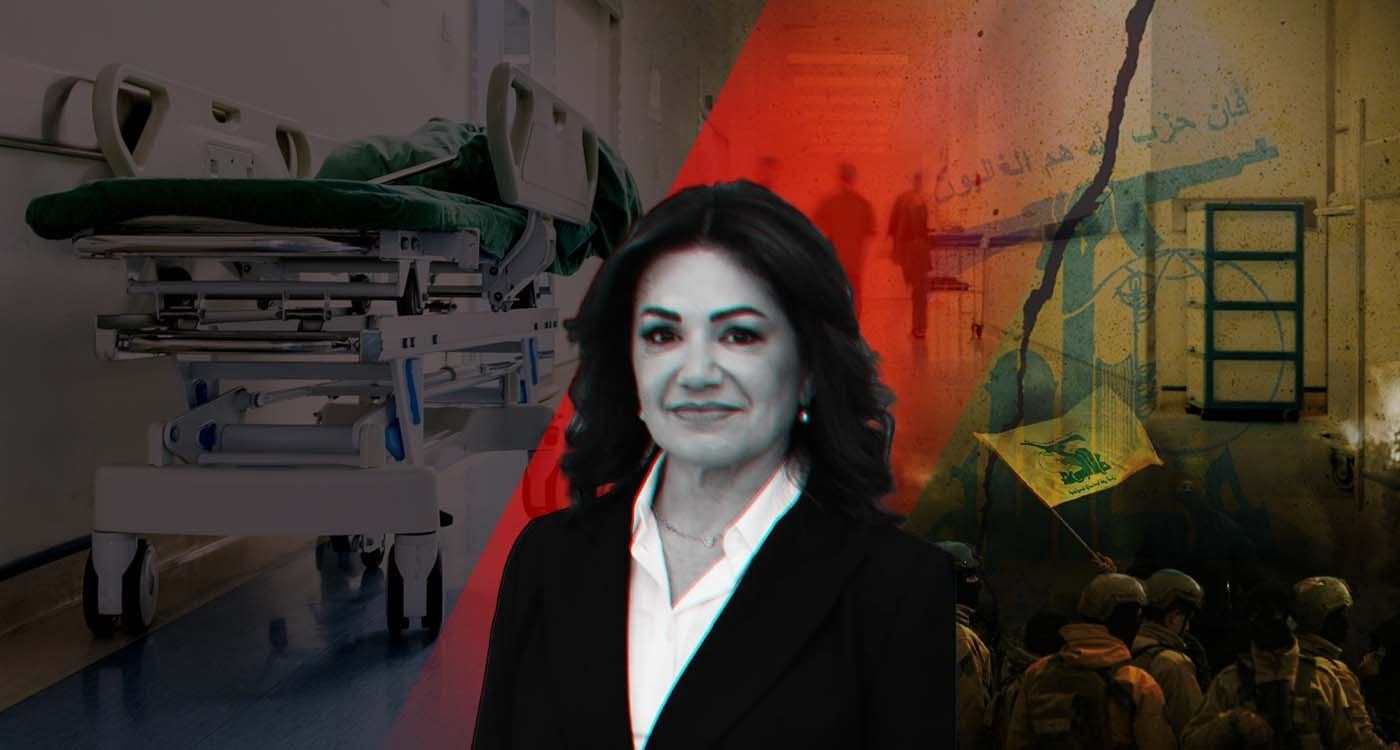
The move marks the first time the Lebanese state formally integrates injured Hezbollah combatants into its national civilian social-protection system.
Lebanon is facing mounting diplomatic backlash after the Ministry of Social Affairs (MoSA) extended state and donor-funded disability benefits to the thousands of Hezbollah fighters wounded in Israel’s September 2024 operation targeting Hezbollah’s communication devices.
What the ministry described as a humanitarian exemption is now being interpreted by Western diplomats and legal experts as a politically driven decision that could violate U.S. counterterrorism financing laws and undermine future foreign assistance to Lebanon.
The move marks the first time the Lebanese state formally integrates injured Hezbollah combatants into its national civilian social-protection system.
A Humanitarian Framing With Major Political Consequences
In a November 14 statement published by Al-Liwaa, Social Affairs Minister Hanine Sayyed insisted that MoSA continues to apply its “unified and fixed criteria” for disability-card issuance, with no exceptions in medical classification.
However, she announced a new humanitarian exemption waiving the age-limit requirement for people wounded in the August 2020 Beirut port explosion as well as in the “pager explosions,” a reference to the September 2024 attacks.
This exemption makes Hezbollah fighters fully eligible for the complete disability benefits package, which includes:
- A monthly cash stipend of $40 for eligible age brackets
- Free or subsidized healthcare, specialized rehabilitation, and follow-up
- Tax exemptions (property, municipal, customs, vehicle-registration)
- Exemptions from national examinations
- Special parking and mobility privileges
- Official disability certificates used to access public and private-sector accommodation
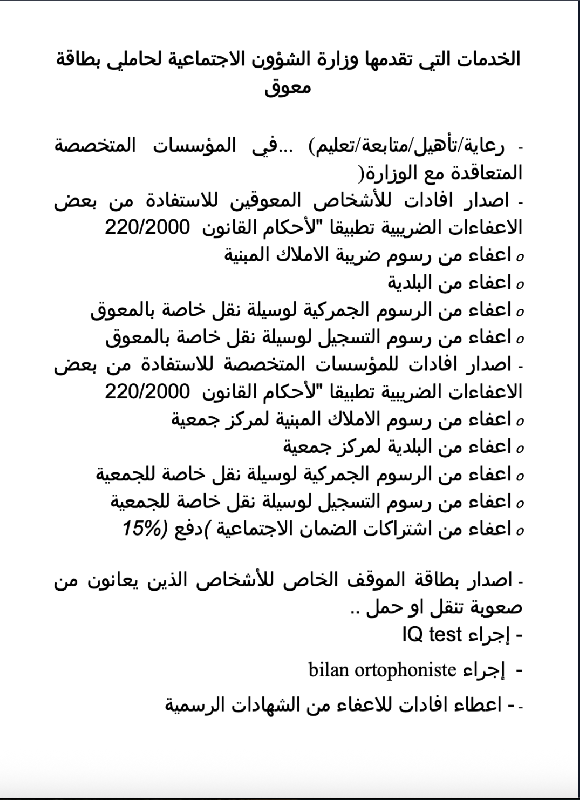
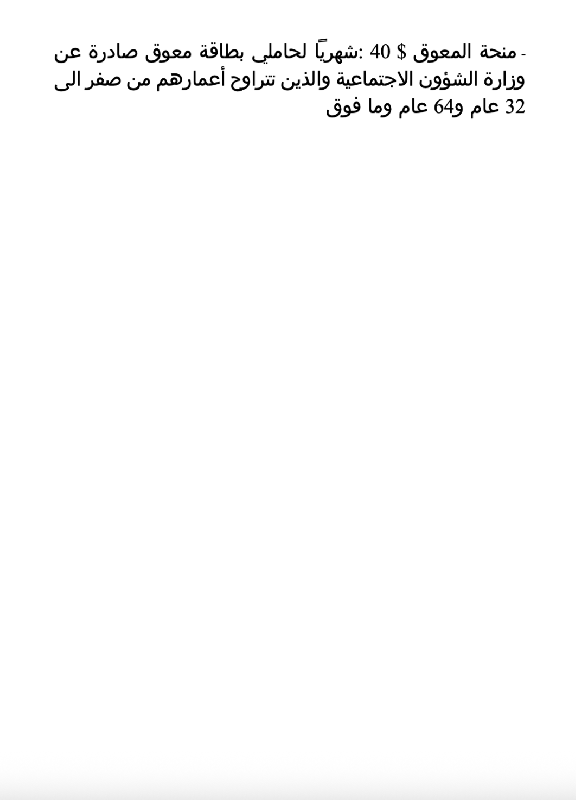
The MoSA had instructed disability centers and social-service offices to fast-track all files related to these wounded groups.
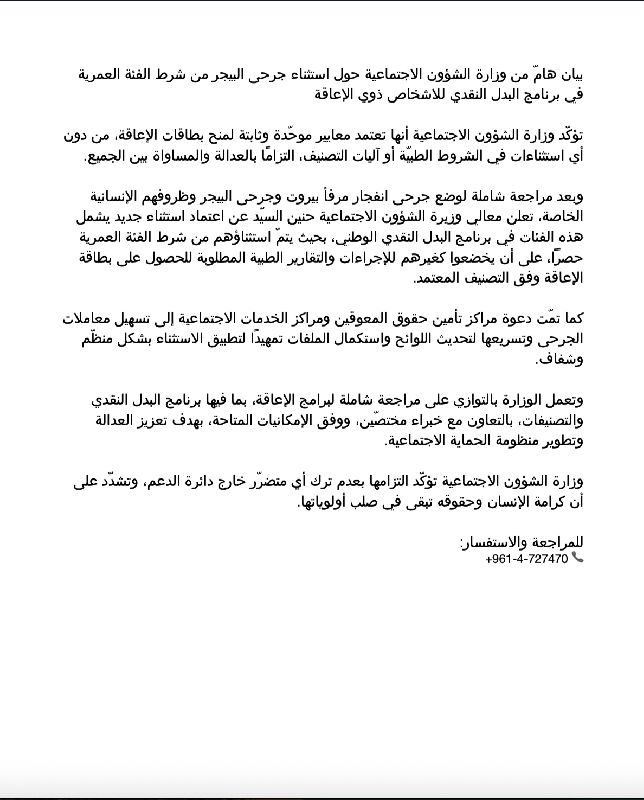
The ministry said that more than 400 Hezbollah fighters have already applied.
In a statement issued Tuesday, the MoSA appeared to back off its earlier move to provide benefits to Hezbollah fighters, probably due to U.S. pressure, but this latest decision remains unclear at the time of publication.
Another Ministry Deepens the Impact: Full Hospital Coverage
A separate circular issued by the Ministry of Public Health (MoPH) orders all public and private hospitals to provide 100% coverage for disability-card holders upon admission.
This automatically extends full state-funded hospitalization to Hezbollah fighters injured in military operations—at a time when Lebanon’s health sector is already collapsing under debt, staffing shortages, and donor fatigue.
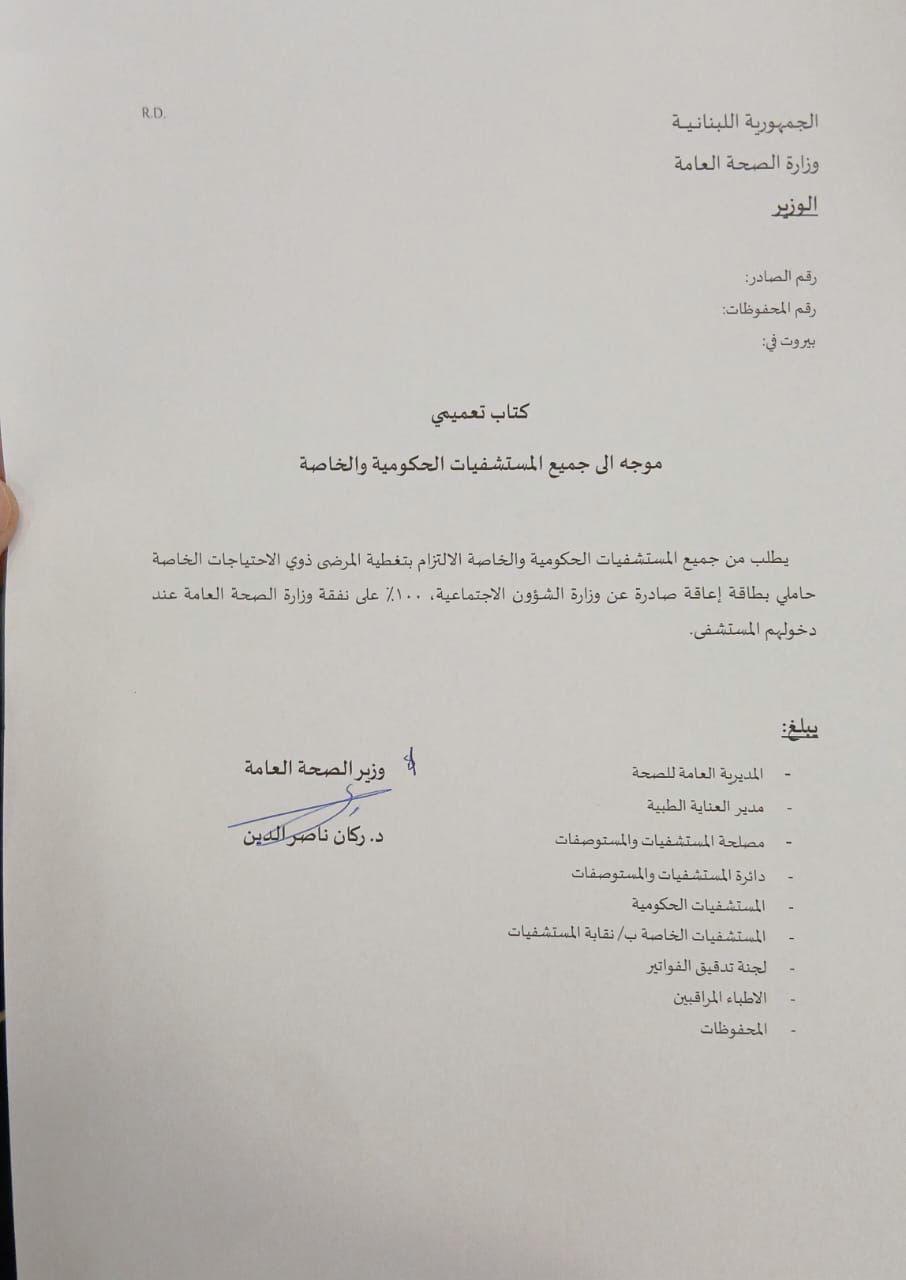
Political Intent: A Cabinet Power Play
While MoSA has framed the decision as a humanitarian measure, Lebanese political insiders argue it is also a calculated political message.
Lebanese political expert Eli Khoury told This is Beirut, “The minister’s act has two folds: one is the Parliament Speaker Nabih Berri’s way to express his resentment of U.S. pressure on him increasing further recently, and it is a way to demonstrate that the duo can still do what it wants within the cabinet.”
“Including Axis [of Resistance] members in the government was not the smartest thing this cabinet did. It is another missed opportunity demonstrating how missed it was,” he added, in reference to Hezbollah and its allies.
The decision is widely seen as:
- A show of strength by Hezbollah and the Amal Movement,
- A deliberate assertion that foreign pressure cannot dictate cabinet decisions,
- And further proof that key ministries are deeply influenced by the political “Axis of Resistance.”
High Legal Risk: Potential Violation of U.S. Terrorism Financing Laws
U.S. legal experts warn that Lebanon’s move may cross a critical legal red line. “If the Lebanese government offers Hezbollah fighters access to disability benefits, the legal argument could be made that it would constitute terrorist financing in violation of U.S. law,” said Hagar Chemali, a former U.S. Department of the Treasury official.
“The legal argument could be made that it would constitute terrorist financing in violation of U.S. law, and such a move could have serious ramifications for future U.S. (and European) foreign aid,” said Chemali, who also served as a former Director for Syria and Lebanon in the U.S. National Security Council.
The analyst explained that “if a government is accepting U.S. foreign aid while simultaneously offering money to anyone tied to a U.S.-designated terrorist organization, it would mean that U.S. dollars are ultimately going to members of a terrorist organization, which is prohibited under U.S. law. Even if the Lebanese government argues the money comes from a different pot, money is fungible.”
According to Chemali, Lebanon’s move was politically ill-advised, regardless of the terrorism financing risk, as it would “make it difficult for U.S. lawmakers to argue in favor of giving Lebanon foreign aid, knowing that funds could potentially go to Hezbollah fighters.”
“Hopefully this minister wakes up, gets smart and reverses this decision,” she added.
Why Donors Are Alarmed:
1. Diversion of Donor-Funded Programs
MoSA’s disability and cash-assistance programs receive funding from:
- The United States,
- European Union,
- UNDP, UNICEF, and others.
Expanding these programs to Hezbollah fighters risks violating donor requirements, undermining neutrality, and possibly triggering sanctions.
2. Reclassifying Combatants as Civilian Victims
MoSA equated Hezbollah’s wounded fighters with Beirut Port explosion victims—an emotionally charged comparison that collapses the distinction between:
- civilians harmed by a national tragedy, and
- armed combatants injured while operating under Iranian direction.
3. Unilateral Action Without Government Consensus
The decision was made without cabinet approval and without prior communication with donors, exposing deep governance vulnerabilities.
4. Hezbollah’s Patronage Network Strengthened
By tapping into state and donor funds, Hezbollah can redirect its own resources toward military or political objectives while expanding its welfare influence.
U.S. and European Response
Diplomatic sources say that Washington plans to issue a private warning to Minister Sayyed, referencing the following U.S. sanctions precedents:
- Global Magnitsky covering corruption,
- Executive Order 13224 covering terrorism financing,
- Executive Order 13441 covering Lebanese sovereignty.
The U.S., EU, and UN agencies are also coordinating to pressure Beirut to suspend or reverse the decision.
A Test of Lebanon’s Claims to Sovereignty
Lebanon has repeatedly pledged to strengthen state institutions and reduce militia influence.
By extending civilian benefits to Hezbollah fighters, the government instead intensifies the overlap between state institutions and a non-state armed group.
The long-term risks are clear:
- Foreign aid could be frozen or heavily restricted.
- Trust in Lebanon’s social-protection system could collapse.
- The state’s own neutrality is increasingly called into question.
Lebanon’s decision to grant disability benefits to Hezbollah’s “pager victims” is far more than a humanitarian exemption—it is an act of political defiance, a legal hazard, and a strategic miscalculation that may jeopardize the country’s most essential lifeline: international support.
Unless reversed, the move could inflict lasting damage on Lebanon’s relationship with its key donors—at a moment when the country can least afford it.


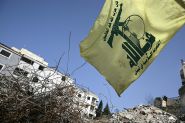

Comments